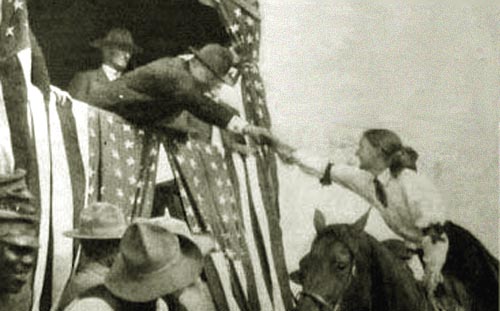
Col. Roosevelt shaking hand of cowgirl, 1910 Frontier Day celebration.
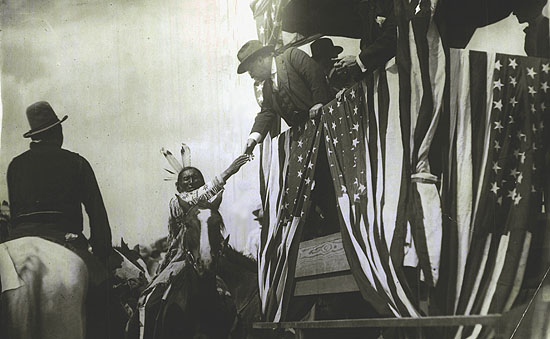
Col. Roosevelt shaking hand of Native American, 1910 Frontier Day celebration.
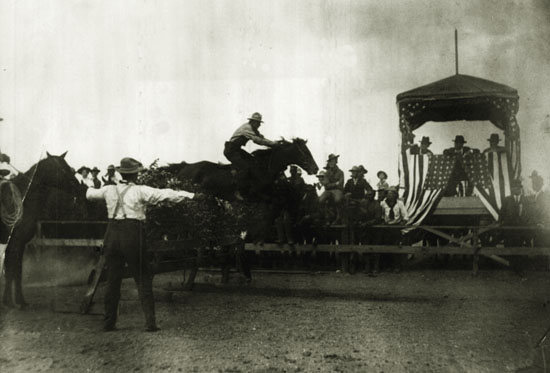
Col. Roosevelt watching race, 1910 Frontier Day celebration.
In 1897,
Frederick W. Angier, Traveling Passenger Agent of the
Union Pacific Railroad, suggested to the editor of the Cheyenne Daily Sun-Leader, a festival similar to
Greeley, Colorado's "Potato Day." As a result of that suggestion,
plans for the first "Frontier Day", were formulated in the
Tivoli Saloon at the corner of 16th Street and Carey. The Saloon now houses
the Chamber of Commerce. Earlier that year in May, there had been a Wild West
exhibition at the fairgrounds at Pioneer Park. The earlier exhibition received less than rave
reviews in the Wyoming Tribune:
The exhibition had hardly commenced when several riders were
thrown violently to the ground. Some escaped with bruised
limbs, faces, etc., while others were quite badly stove up."
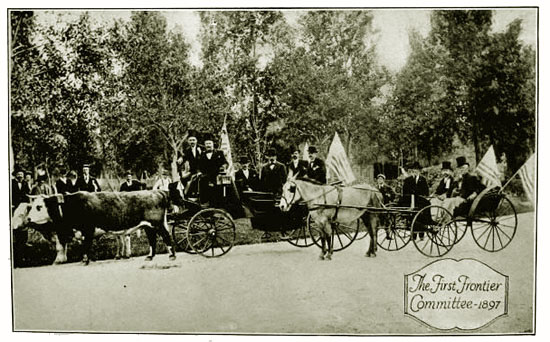
1897 Frontier Day Committee
Nevertheless, on September 23 the first Frontier Day was held. Cheyenne Mayor William Rex Schnitger, John Hunton, and N. K. Boswell judged the
racing events. Jeweler and former legislator Hugo E. Buechner and cartographer and later editor of
the Wyoming Tribune Frank Bond acted as timekeepers. John McDermott was the starter and Herman Glafcke acted as clerk.
The town was flag bedecked and a special excursion train brought in a band and visitors. The
Sun-Leader waxed enthusiastically about the "thousands of visitors from all
over the state and from Colorado and Nebraska." The editor of the
Wyoming Tribune apparently had not changed his mind:
There are some features of such a program that do not meet with approbation of all. . . .
Our visitors know that the stage holdup, the vigilantes and the ox team departed from our
boundaries a generation ago. . . .The influence of Frontier Day is not elevating in
character."
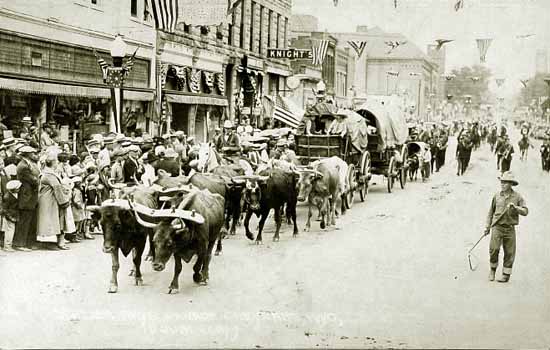
Ox Team, 1922 Frontier Days Parade, Capital Ave. Photo by Ralph Doubleday.
Of course, the Tribune's opinion was ignored and Frontier Days over the years continued to present
ox teams, vigilantes, and stage holdups as major parts of the presentation. In short, the early committees did not take themselves
too seriously.
Even though ox teams, vigilantes and stage holdups remained a part of the Frontier Days Parade,
by 1922 The Tribune had apparently reversed its opinion. In a July 28, 1922,
editorial, the paper enthusiastically raved that Frontier Days was to
Cheyenne as the Passion Play was to Oberammagua.
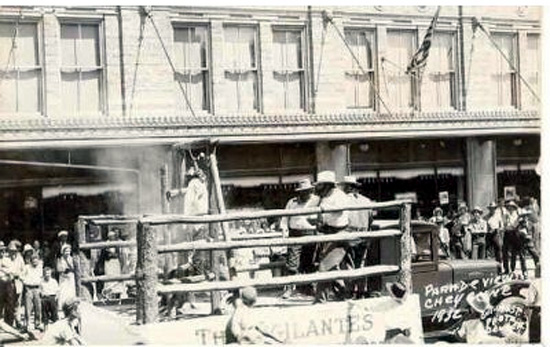
Frontier Days float depicting vigilantes hanging a poor miscreant. Photo by Adlai E. Gordon, 1932.
In the first celebration, Bill Root propriator of Laramie's Blackburn Theatre, played the part of the
miscreant. The first Frontier Day celebration lasted only one day, starting at noon with a cannon fired by Battery A of the 76th Field Artillery and
concluding with a Grand Ball with
music provided by Maparstek's Orchestra at
Keefe Hall.
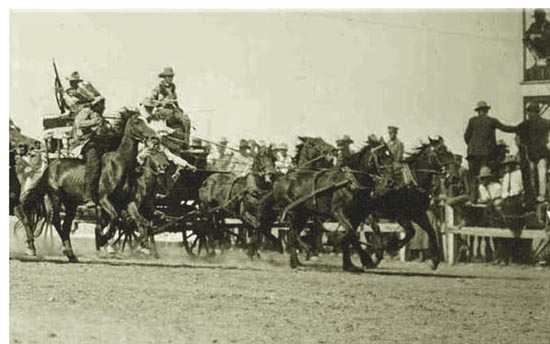
Frontier Days Stage Attack, undated.
In the initial Frontier Day celebration, on the box of the six-horse stage was teamster David Creath.
Within, Passengers included R. S. Van Tassell, Warren Richardson, John A. Martin, Leopold Kabis along with others. The speeding
coach rounded the curve to the west side of the track. There, as the stage was about to be attacked by
"road agents," Van Tassell had second thoughts as to whether Creath would be able maintain control over the galloping horses.
Van Tassell attempted to dismount from the coach. One of the
other passengers held him on. Creath, of course, had no problem handling the ribbons and keeping the
horses under control.
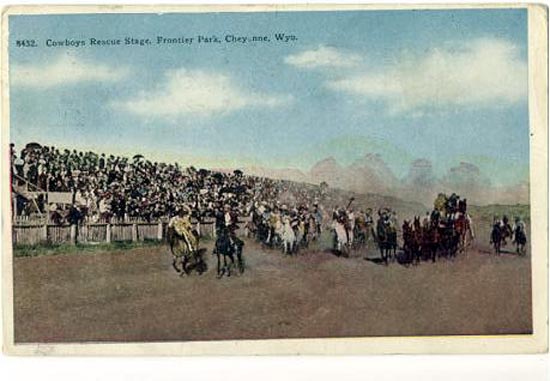
Frontier Days Stage Attack, 1925.
In the first rodeo, Bill Jones won the saddle bronc contest. The only marring incident was when
bleachers were smashed by wild horses which had broken loose as spectators fled
for safety. By the following year, Wm. F. Cody's "Wild West Show and Congress of the Rough
Riders of the World" attracted an audience of 6,000. The festival was such a sucess that the
following year, the event was expanded to two days. Although the event became a multiple
day program, it continued to be referred to as "Frontier Day" in the singular until after 1910.
Next page, Frontier Days continued.